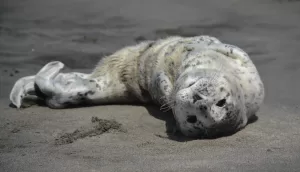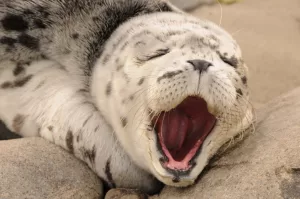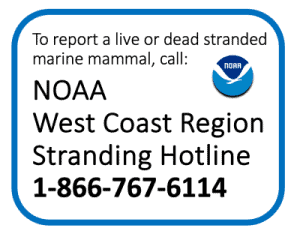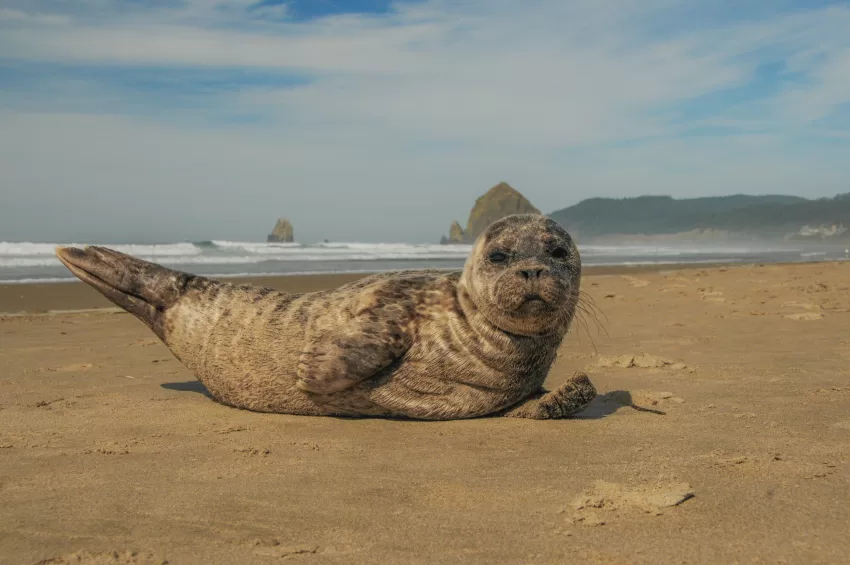Photographs or video by TiffanyBoothe/SeasideAquarium
The first reports of harbor seal pups on the beach have started coming in.
Oregon and Washington typically see harbor seals born throughout spring and into late summer, while California may see pups as early as January. These young animals use time on land to regulate body temperature and rest. However, if a young pup is onshore alone the mother may not return if humans are too close. Thus, wildlife experts suggest giving seal pups plenty of space by observing them from a distance, and while they are absolutely adorable, do not touch them.
Female seals birth annually after an eleven-month gestation and utilize familiar coastal shores or estuary areas with easy access to water to have their pups. New seals can immediately swim but stay close and ride on their mothers back while they mature.


Seal pups often double in size from birth in 4-6 weeks on a regular diet of mother’s milk with 40% milkfat. While the extra layer of fat makes the pups adorable, the pups depend on that stored body fat to survive foraging on their own as they become more independent. Any interference from humans that could cause early separation between newborn pup and mother could be detrimental to the pup’s ability to survive.
Marine mammals are protected under the Marine Mammal Protection Act. Under this federal law it is illegal to move, touch, harass, feed, or kill marine mammals including seal pups. Harbor seals live on land for nearly half their lives breeding, molting, resting, and raising their offspring. Molting occurs after pups are weaned and to retain warmth and energy molting seals often stay on land for extended periods of time. Human encroachment and domestic dog interactions are challenges for the health and well-being of both young and mature seals.
 If you come across a seal pup, please contact the Marine Mammal Stranding Network by calling 1-866-767-6114. Local wildlife officials may post educational signs that encourage the public to keep a safe distance away from the animal while the situation is monitored by experts. Most of the time the animal is healthy and in need of a rest before it rejoins with its mother or re-enters the water. Last year the Seaside Aquarium responded to and placed signs on 21 harbor seal pups all of which successfully left the beach.
If you come across a seal pup, please contact the Marine Mammal Stranding Network by calling 1-866-767-6114. Local wildlife officials may post educational signs that encourage the public to keep a safe distance away from the animal while the situation is monitored by experts. Most of the time the animal is healthy and in need of a rest before it rejoins with its mother or re-enters the water. Last year the Seaside Aquarium responded to and placed signs on 21 harbor seal pups all of which successfully left the beach.
The Marine Mammal Stranding Network responds to sightings of seal pups and other injured or dead marine mammals (including whales or dolphins). Responders will act as quickly as possible to assess the situation and obtain information and observations about the animal in question.
For the northern Oregon and southern Washington coast the Seaside Aquarium is the local responder for the Marine Mammal Stranding Network and can be contacted at 503.738.6211. If a stranded marine mammal is found elsewhere the Marine Mammal Hotline at 1.866-767-6114 and they will contact the appropriate stranding network responder for the area.


